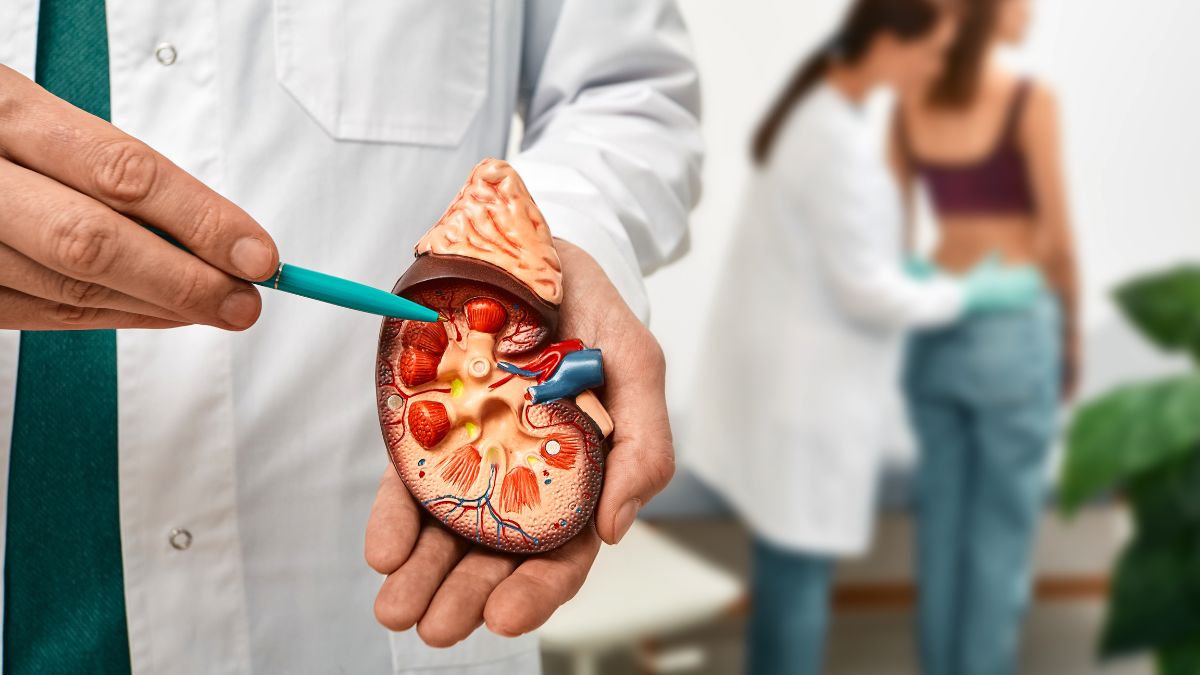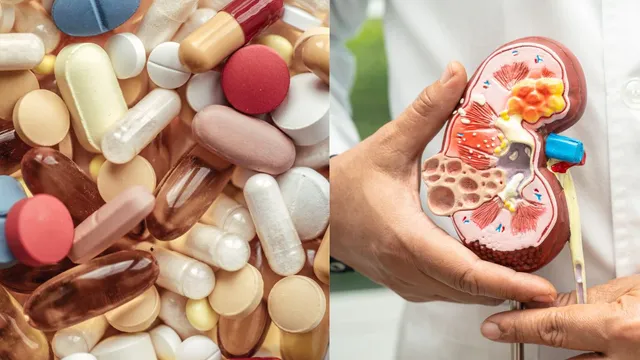- By Bornika Das
- Fri, 26 Sep 2025 06:27 PM (IST)
- Source:JND
Painkillers are over-the-counter drugs that relieve pain ranging from headaches to chronic pain. Even though they are used to relieve pain, most people do not know the dangers that are linked to their long-term or excessive use. Physicians caution that frequent use of some painkillers, particularly nonsteroidal anti-inflammatory drugs (NSAIDs) and some over-the-counter drugs, can cause permanent kidney damage if taken continuously. Knowledge of how these drugs impact kidney function is important to avert chronic health conditions.
Kidneys are an important part of the process of filtering waste out of the body and regulating fluid levels, but they are susceptible to injury from certain drugs when used improperly. Painkillers decrease blood flow to the kidneys, stressing and damaging these organs. Frequent or excessive consumption, under self-management, elevates the risk of acquiring chronic kidney disease or even kidney failure. In conversation with The Daily Jagran, Dr. Uday Dipakrao Gajare, Consultant Nephrologist,Asian Institute of Nephrology and Urology Vizag, explains how painkiller habits can damage the kidneys and how you can protect the vital organs.
Painkiller Habit Concern
Dr. Uday Dipakrao states, “The real troublemakers are those NSAIDs, ibuprofen, diclofenac, naproxen, you know the drill. Sure, they kill pain, but they also mess with blood flow to your kidneys.” That’s not great. The risk jumps if you’re popping them all the time, chasing higher doses, or if you’ve already got stuff like diabetes, high blood pressure, or you just aren’t as young as you used to be (sorry, but kidneys don’t age like fine wine).
Even though these medicines are easily available without a prescription (over the counter), people should not assume they are completely safe or harmless. Dr. Uday Dipakrao adds, “Taking them carelessly can still cause harm.”
ALSO READ: Kidney Stones On The Rise: Doctor Shares Lifestyle Changes That Can Lower Risk
Self-Medication Is Dangerous
Many people take painkillers without proper guidance. They sometimes combine different brands, take higher doses, or mix them with other medicines on their own, as if they were self-prescribing. Dr. Uday Dipakrao mentions, “This DIY approach can wreck your kidneys, barely even touch what’s actually causing your pain, and make it way harder to spot serious health problems before they blow up in your face.”

Painkillers Cause Kidney Damage (Image Credits: Canva)
How To Not Damage Your Kidneys
Only grab painkillers when you really need.
Short stints, not a daily habit - unless your doctor gives you the green light.
Drink water like you mean it.
Got a minor ache? Try stretching, a bit of yoga, or just walk it off before you reach for the pill bottle.
If you’ve got diabetes, high blood pressure, or already have kidney issues—talk to your doctor before you start popping stuff.
Silent But Deadly: Kidney Trouble Doesn’t Shout
Kidney problems are silent. They don’t send out big warning sirens. Keep an eye out for swelling, feeling wiped out for no reason, or peeing way less than usual. Don’t wait and get checked out early and often. Trust me, future you will thank you.
Painkillers? Total lifesavers when you use them smart. But if you treat them wrong, you’re rolling the dice with your kidneys. Be smart: go easy on the pills, talk to professionals if you’re not sure, and get regular checkups. Don’t let a quick fix today mess up your tomorrows.

